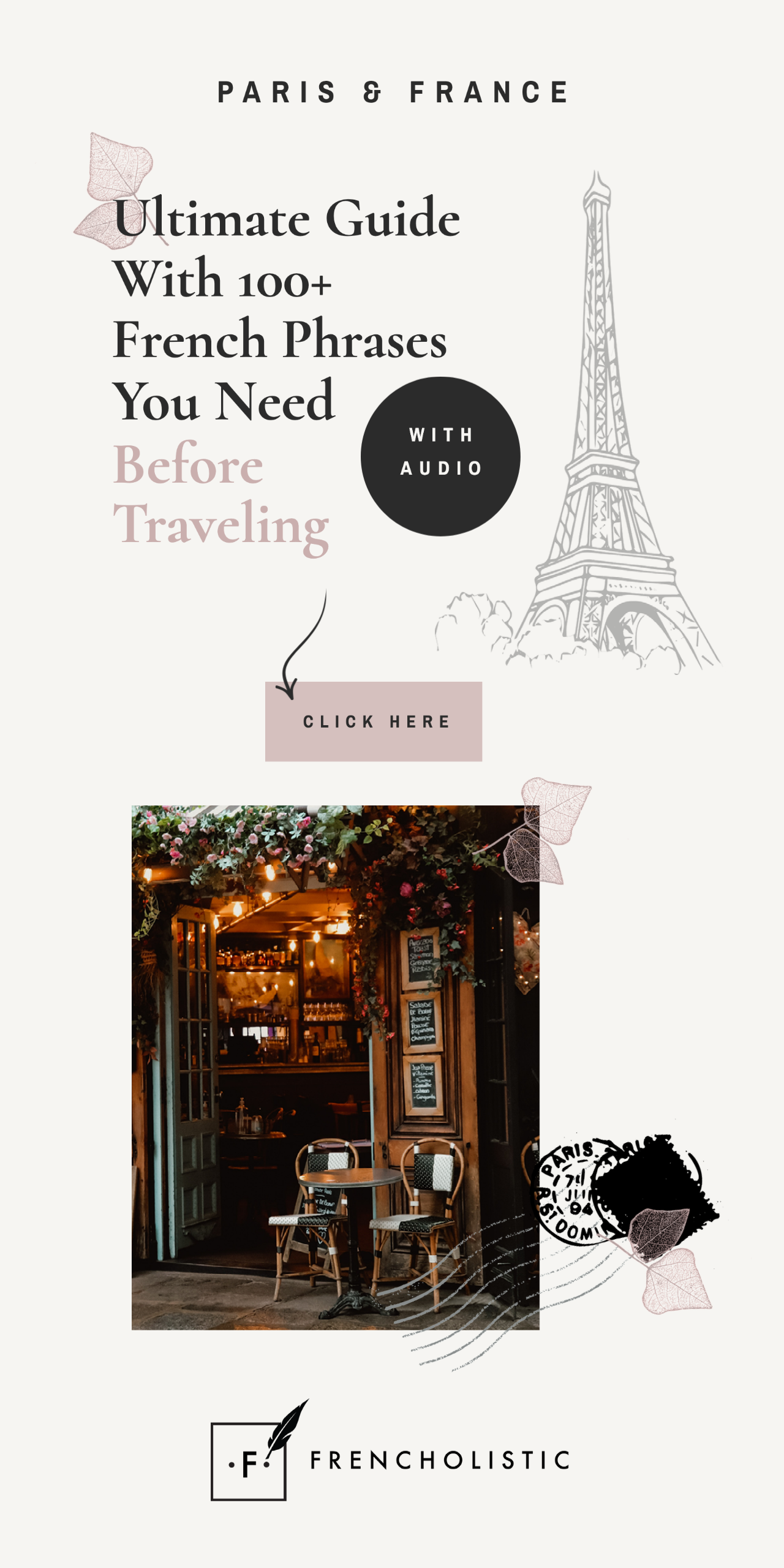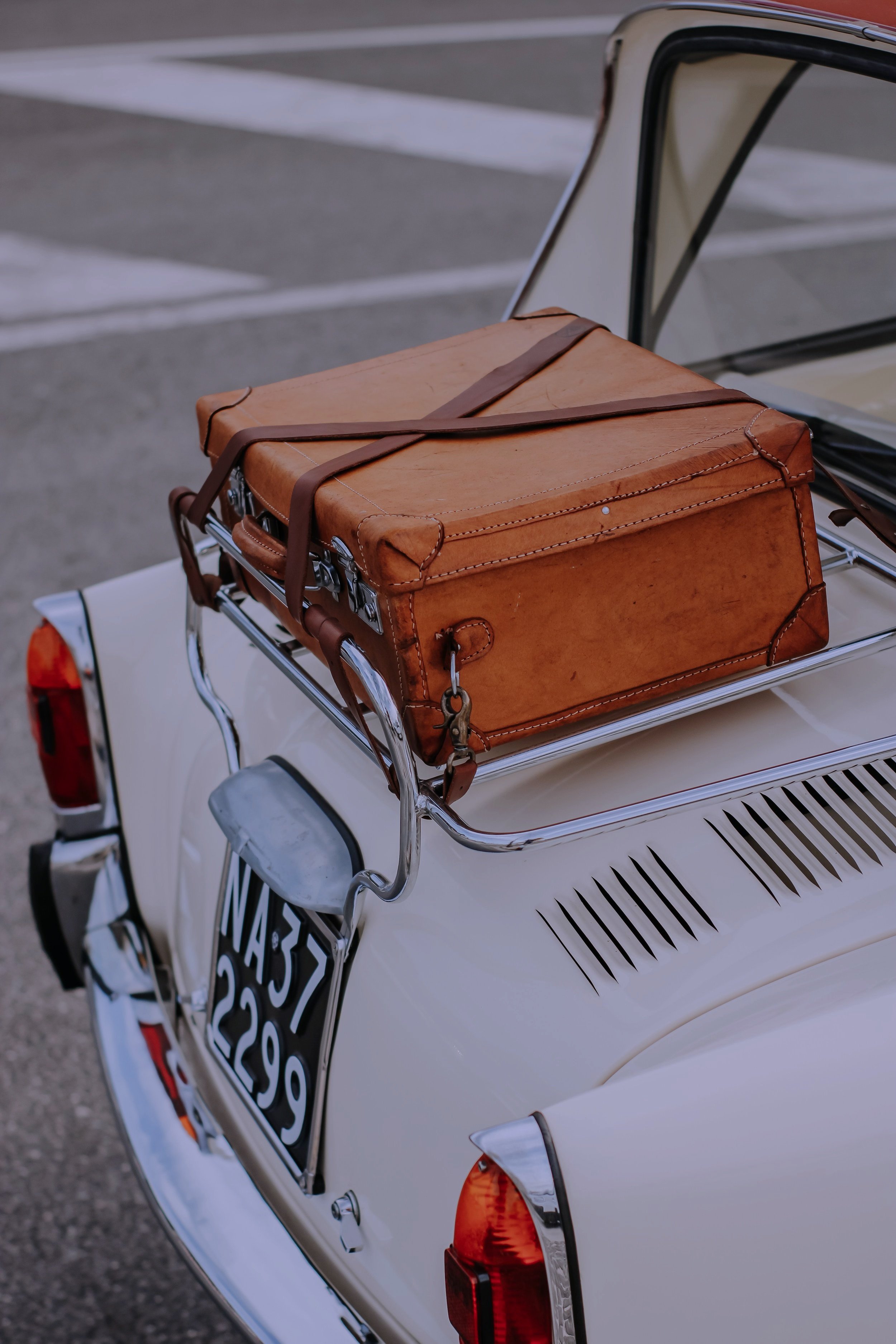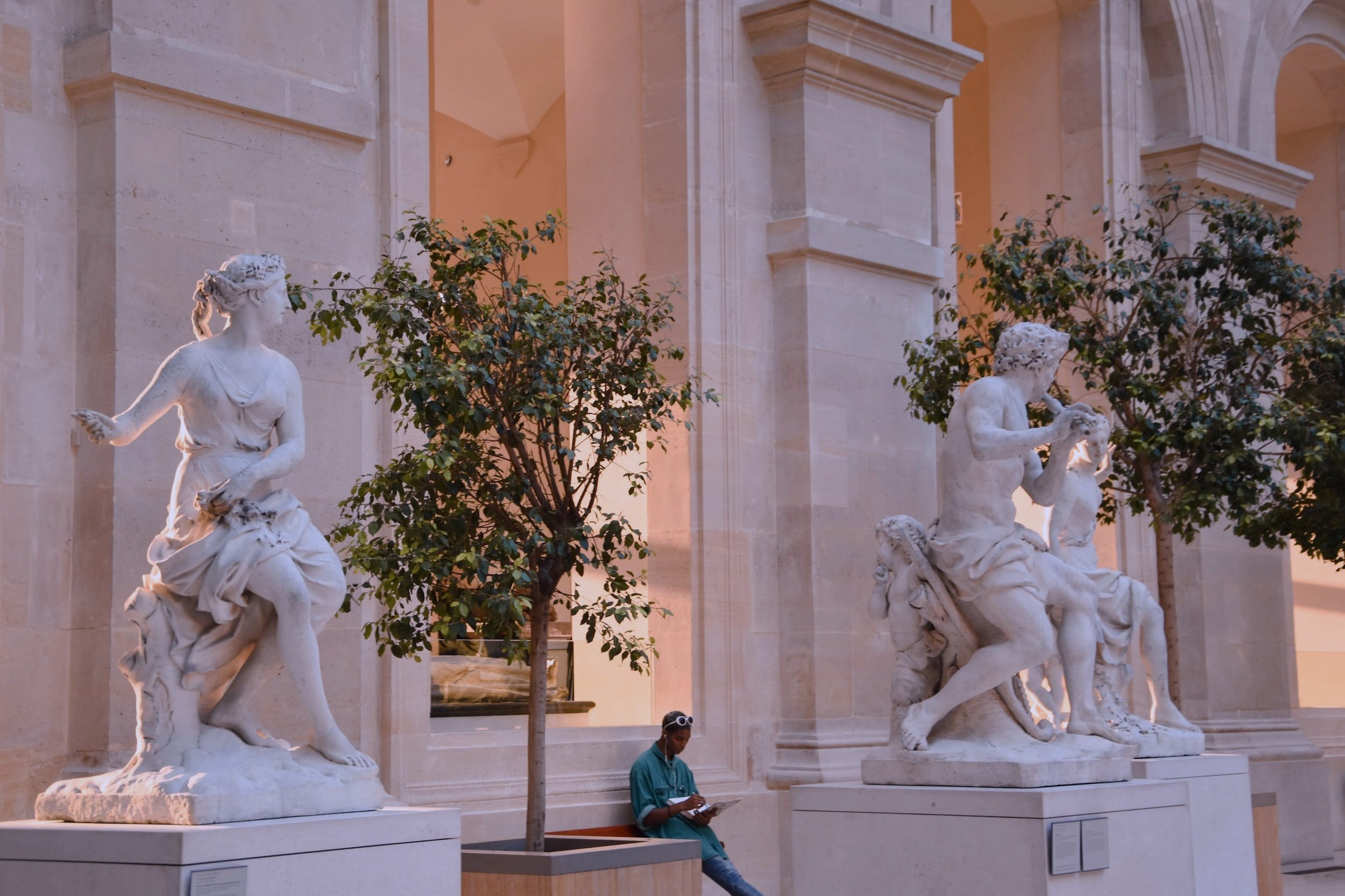The Best French Phrases for Traveling
Bonjour ! Hello!
What separates a good trip from a bad one is often your contact with the locals. When you don’t know the culture of the country you are visiting, it is easy to be rude or disrespectful without even knowing it.
Indeed, the French people are very attached to politeness.
Learning even a few basic phrases and words in French will help prepare you for the most common scenarios you will encounter while traveling. Moreover, the French locals will automatically treat you better and appreciate your efforts to speak their language even more if you address them politely.
So, before you pack your bags and jump on a plane, learn a little French.
To do so, I prepared 145 essential French phrases (with audio!) to help you mix with the locals and have a more enjoyable and authentic experience. You will be amazed at the effect of these phrases on the French people you meet! And you’ll create memories that will last a lifetime!
1. Formalities
The French have two pronouns to translate ‘you,’ vous and tu.
WHY IT MATTERS It defines your desired type of relationship with someone. Knowing when to use one or the other will ensure you are not rude, disrespectful, or unfriendly.
Vous - You (the formal ‘you’ to address a single person)
Using ‘tu’ when you should say ‘vous’ and people may think you are disrespecting them.
WHEN TO USE IT. When addressing strangers
. In administrative situations
. With managers
. In business and customer relationships
. And with people over 20 years older than you
2. Vous - You (the plural ‘you’ to address two or more people)
3. Tu - You (the informal ‘you’ to address a single person)
Using ‘vous’ when you should say ‘tu’ and people may think you are unfriendly or snobby. So you need to be able to switch from the formal ‘vous’ to the familiar 'tu’ in some situations.
WHEN TO USE IT. when addressing kids and teenagers
. with family & friends
. with colleagues
. with people of the same age
4. Est-ce qu’on peut se tutoyer? Can we call each other ‘tu’? (neutral)
French has a verb for saying they address someone using ‘tu’, tutoyer.
WHEN TO USE IT. If you are unsure whether to say ‘tu,’ you can ask the person using this question.
5. On peut se dire ‘tu’? Can we say “tu” to each other? (familiar)
2. French Salutations
As for English, there are many different ways to say hello in French. To pick the correct one, you need to consider the following:
the context (professional, personal)
the relationship you have with the interlocutor (formal, informal, casual, etc.)
the time of the day (during the day or in the evening)
Do not worry, I will shed some light on all this!
6. Bonjour - Hello, Good morning/afternoon
( neutral, any time of day up to 6:30 pm)
WHEN TO USE IT. To greet shopkeepers and restaurant staff
. To greet any professional working
. With other students or teachers
. To ask for information
HOW TO USE IT In a bakery: Bonjour, deux baguettes et quatre croissants, s’il vous plaît.
Hello/Good morning/afternoon. Twoo baguettes and four croissants, please.
In a restaurant: Bonjour, nous voudrions une table pour deux personnes, s’il vous plaît.
Hello/Good morning/afternoon, we would like a table for two people.
In a store: Bonjour, j’aimerais voir pour une robe, s’il vous plaît.
Hello, I’d like to see for a dress, please.
7. Bonjour madame / mesdames / monsieur / messieurs ( formal, any time of day up to 6:30 pm)
Bonjour monsieur (to a man) - Hello/Good morning/Good afternoon, sir.
Bonjour madame (to a woman) - Hello/Good morning/Good afternoon, ma’am.
Bonjour mademoiselle (to a young woman) - Hello/Good morning/Good afternoon, miss.
Bonjour messieurs (to men) - Hello/Good morning/Good afternoon, gentlemen.
Bonjour mesdames (to women) - Hello/Good morning/Good afternoon, ladies.
WHEN TO USE IT. With customs officials & the police
. With a real estate agent
. At the doctor’s office on arrival
. At a job interview
HOW TO USE ITAt the doctor’s office: Bonjour madame, j’ai rendez vous avec le docteur Dupont.
Hello ma’am; I have an appointment with Dr. Dupont.
Note: adding the person’s last name after ‘madame’ or ‘monsieur’ is even more formal.
Bonjour madame Robinson / Bonjour monsieur Aston
Hello Mrs. Robinson / Hello Mr. Aston
8. Salut - Hi (casual, any time)
WHEN TO USE IT . With your family & friends
. With close colleagues
. When you see someone again later in the day
. Between young people
HOW TO USE ITSalut, tu vas bien ? Hi, how are you? / Hi, are you okay?
9. Coucou - Hey there / Hi there (informal, any time)
Coucou, comment ça va ? Hey there, how are you?
10. Bonsoir – Good evening / hello (neutral, after 6:30 pm)
In French, this phrase for “good evening” is used in similar situations as bonjour but is reserved for the evening.
3. Introducing Yourself and Others
Learning the correct way to say “enchanté” in French is essential because it is the first impression. Here you will learn many ways to say that you are pleased to meet someone or a group of people for the first time.
A. Introducing Someone to Someone Else
11. Je vous présente Marie… - I’d like to introduce Marie (formal and/or plural)
12. Je te présente Marie - I’d like to introduce Marie (informal)
13. Voici Marie - This is Marie (neutral)
HOW TO USE ITCasual Situation
Léa: Bonjour, je te présente Paul.
Hello, let me introduce you to Paul.
Eric: Bonjour, Paul. Moi, c’est Eric. Enchanté de te rencontrer.
Hi, Paul. I’m Eric. Nice to meet you.
Formal Situation
M. Aston: Bonjour monsieur Duval, je vous présente mademoiselle Vasseur.
Hello Mr. Duval; let me introduce you to Miss Vasseur.
Mr. Duval: Enchanté de vous rencontrer.
It’s a pleasure to meet you.
B. When You Have Just Been Introduced to Someone
14. Enchanté(e) - Nice to meet you (neutral)
15. Ravi(e) de vous rencontrer - Pleased to meet you (formal)
16. Ravi(e) de te rencontrer - Pleased to meet you
17. Ravi(e) de faire votre connaissance - Pleased to meet you (very formal)
18. Ravi(e) de faire ta connaissance - Pleased to meet you
19. C’est un plaisir de vous rencontrer - Pleased to meet you (formal)
20. C’est un plaisir de te rencontrer - Pleased to meet you (familiar)
HOW TO USE ITInformal situation
Léa: Bonjour, je m’appelle Léa, et toi? Hello, my name is Lea; what’s yours?
Eric: Enchanté. Moi, c’est Eric. Nice to meet you. I’m Eric.
Formal situation
M. Aston: Bonjour, je suis monsieur Aston. Ravi de vous rencontrer.
Hello, I am Mr. Aston. Pleased to meet you.
Mme Dior: Enchantée. Je suis madame Dior. Nice to meet you. I am Mrs. Dior
C. Introducing Yourself
21. Je m’appelle Paul - My name is… (neutral)
22. Je me présente. Je suis Paul - Let me introduce myself. I am a… (formal)
23. Moi, c’est Paul. - I’m Paul (informal)
HOW TO USE ITInformal situation
Léa: Salut, je m’appelle Léa, et toi?.
Hi, my name is Léa, and you?
Eric: Salut Léa. Moi, c’est Eric.
Hi, Léa. I’m Eric.
Formal situation
M. Aston: Bonjour, je me présente. Je suis monsieur Aston.
Let me introduce myself. I am Mr. Aston.
Ms. Garnier: Bonjour, monsieur. Enchantée de vous rencontrer. Je suis mademoiselle Garnier.
Hello, sir. Pleased to meet you. I am Mademoiselle Garnier.
4. Asking Someone How Things Are Going
24. Comment allez-vous ? - How are you? (formal or to a group of people)
25. Vous allez bien ? - Are you well? (formal, not standard)
It is not standard French as it doesn’t use the question form.
However, it’s one of the most common ways to ask someone if they are well.
26. Comment vas-tu ? - How are you? (informal)
Because of the inversion of the subject and the verb, this question has a slightly higher register than if it were used in an affirmative form with a question mark such as ‘comment tu vas?’
27. Tu vas bien ? - Are you okay? (informal, casual, friendly)
28. Quoi de neuf ? - What’s up? (very informal and casual)
29. Sinon, quoi de beau ? - What’s up? (very informal)
This question means, ‘So, what good things have happened lately?’
30. Comment tu te sens ? - How are you feeling? (informal, caring)
31. Alors? - So what’s going on? (very informal, curious)
This question is used for an update on a topic the speakers have been discussing not long ago.
For example, imagine you are with a friend when your neighbor rings the doorbell. Your neighbor wants to talk to you privately about a problem in your building. When you return to your friend, she asks you: “Alors?”
32. ça va? - Are you okay? (informal, neutral)
Removing the comment from “comment ça va?” informalizes this expression. Nevertheless, regardless of social strata and context, it is widely used everywhere.
5. Telling How You Have Been Doing - Positive
33. très bien - very well (neutral)
34. super - great (informal)
35. ça va - fine
36. génial - great (informal)
37. je vais bien - I’m doing fine
38. je vais très bien - I’m very well
6. Telling How You Have Been Doing - Neutral
39. comme d’hab (=d’habitude) - as usual (informal)
40. ça peut aller - I’ll get by
41. comme ci, comme ça - so so
42. ça pourrait être pire - it could be worse
43. Je me débrouille - Just plugging along
44. Je me débrouille tant bien que mal - Just muddling through
7. Telling How You Have Been Doing - Negative
45. bof - meh, nah
46. pas top - not great
47. pas trop bien - not so good
48. (plutôt) fatigué(e)- (quite) tired
49 (plutôt) stressé(e) - (quite) stressed
50. épuisé(e) - exhausted
51. pas très en forme - not in the best shape
8. Ending a Conversation
52. Il se fait tard, je dois y aller - It’s getting late. I have to go (neutral)
53. J’ai été ravi(e) de discuter avec vous - it’s been nice chatting with you (formal)
54. Eh bien, c’était vraiment un plaisir de te voir, mais je dois y aller. Well, it was really good to see you, but I must go
55. C’était un plaisir de vous revoir - It was so good to see you again.
9. Good-Byes
A. Simple Good-Byes
56. Bonne journée - Have a nice day
You can use this expression at the end of a conversation when parting with someone during the day. You can use it when you leave a store, a shop, or after talking to someone on the street.
57. Bonne soirée - Have a lovely evening (after 5 pm)
You will use it in situations similar to “bonne journée” but after 5 pm.
58. A plus tard - See you later
59. A bientôt - See you soon
60. A demain - See you tomorrow
61. A la prochaine - Until next time
62. Salut ! - Bye
63. Bon, allez, salut ! - Well, goodbye!
64. Ciao ! - Bye
This one may seem surprising as it borrows from the Italian language, but we use it often. (after all, they are one of our close neighbors!)
65. A tout à l’heure ! - See you later
You will use this one if you know you will see the person you are leaving later that day.
66. Au revoir ! - Goodbye
B. Taking Leave of Someone
67. Prends soin de toi - Take Care (informal)
68. Prenez soin de vous - Take Care (formal)
69. Enchanté d'avoir parlé avec vous - Nice talking to you (formal)
70. Enchanté de vous avoir rencontré - Nice meeting you (formal)
71. Heureux/heureuse de vous avoir rencontré - Good running into you (formal)
72. J'ai été heureux/heureuse de vous voir/revoir. It was good to see you (formal)
73. C'était sympa de te revoir - It was nice to see you again (informal)
74 Ce fut un réel plaisir - It’s been a real pleasure (formal)
10. Polite Interruptions & Gratitude
If you are interrupting someone busy working in a store, on the street, or in a restaurant, or someone busy reading, eating, or on the phone, etc., be careful.
You'll first need to say bonjour and apologize for disturbing them before asking your question. Many tourists not aware of these cultural norms of politeness in France find themselves confronted by French people who are shocked by the lack of courtesy and may become unpleasant.
Finally, before leaving the person, don't forget to thank them.
Don’t worry; it’s not very complicated. Please look at the examples I've included below to see how you can do this.
75. Bonjour, excusez-moi de vous déranger. Pouvez-vous me renseigner? Hello, I'm sorry to bother you. Can you help me?
76. Merci beaucoup. Bonne journée / Bonne soirée. Thank you very much. Have a lovely day/evening.
77. excusez-moi - pardon me, excuse me
78. s’il vous plaît - pardon
79. pardon - excuse me
HOW TO USE ITTourist: Bonjour, excusez-moi. Pouvez-vous me dire où se trouve la poste ? Excuse me, where's the post office, please?French: Oui, bien sûr. C’est au bout de la rue sur votre droite. Yes, of course. It's down the street on your right.
Tourist: Merci beaucoup. Bonne journée ! Thank you very much. Have a nice day!
French: De rien! Bonne journée ! You’re welcome! Have a lovely day!
11. Shopping in Stores & Shops
A. Asking about store hours
80. Quels sont les horaires d'ouverture ? When are you open?
81. Quand est-ce que vous ouvrez/fermez ? When do you open/close?
82. Jusqu'à quelle heure êtes-vous ouvert aujourd'hui ? How late are you open today?
83. Etes-vous ouvert samedi ? Are you open on Saturday?
B. A Salesman greeting you
84. Puis-je vous aider ? May I help you?
85. Est-ce que je peux vous aider ? Can I help you?
86. Est-ce que je peux vous aider en quoi que ce soit ? Is there anything I can help you with?
C. Shopping for something
87. Je cherche quelque chose pour ma femme / mon mari. I’m looking for something for my wife/my husband
88. J’ai besoin d’une taille 40 (quarante). I need a size 40.
89. Est-ce que vous avez d’autres couleurs ? Do you have any other colors?
90. Est-ce que vous avez une plus grande/petite taille ? Do you have a larger/smaller size?
91. J’ai besoin d’une robe / d’un pantalon en taille 40 (quarante). I need a dress/pants in size 40.
92. Est-ce que vous avez cet article en rouge? Do you have this item in red?
D. When you are just looking and not buying
93. Je ne fais que regarder. I’m just browsing
94. Je regarde simplement. Thank you, I’m just looking
E. When you want to try on clothing
95. Je voudrais essayer ceci. I’d like to try this on.
96. Où sont les cabines d’essayage, s’il vous plaît? Where are the fitting rooms, please?
F. Asking for the price
97. Combien coûte cet article, s’il vous plaît? How much does this item cost, please?
98. Combien ça coûte, s’il vous plaît? How much does it cost, please?
12. Cafés & Restaurants
A. Ordering drinks in a café
98. Est-ce que vous avez une carte ? Do you have a menu?
99. Je prendrai une bière pression, s’il vous plaît. I'll have a draft beer, please.
100. Je prendrai un café, s’il vous plaît. I'll have a coffee, please.
101. Je prendrai un Coca sans glaçons, s’il vous plaît. I'll have a Coke, no ice, please.
102. Je prendrai une limonade, s’il vous plaît. I'll have a lemonade, please.
B. Asking for a table at a restaurant
It's important to know that French restaurants do not wrap uneaten food, so it can be taken home as you do in the United States.
103. Une table pour deux, s’il vous plaît. A table for two, please.
104. J’ai fait une réservation. I have a reservation.
C. Requesting attention from a waiter or waitress
105. Excusez-moi, monsieur! Pardon me, sir!
106. S’il vous plaît ? Excuse me Sir/Madam?
D. Explaining that you are not ready to order
107. Nous n’avons pas encore choisi. We haven't made a choice yet.
108. Nous avons du mal à choisir. We have a hard time choosing.
109. Nous ne sommes pas encore prêt. We are not yet ready.
E. Explaining that you are ready to order
110. Pouvez-vous prendre la commande, s’il vous plaît ? Can you take our orders now?
111. Nous sommes prêts. We’re ready.
F. Asking for the bill in a restaurant
112. Puis-je avoir l’addition, s’il vous plaît? Could I have the bill, please?
113. Puis-je avoir un reçu ? Can I have a receipt?
13. Searching for a Place or Direction
114. Pouvez-vous m’indiquer les toilettes, s’il vous plaît? Can you direct me to the restroom, please?
115. Pouvez-vous m’indiquer le métro le plus proche, s’il vous plaît? Can you tell me the nearest subway station, please?
116. Pouvez-vous m’indiquer une station de taxi, s’il vous plaît? Can you point me to a taxi rank, please?
117. Pouvez-vous m'indiquer un guichet automatique ? Can you point me to an ATM?
118. Savez-vous s’il y a une pharmacie pas très loin? Do you know if there is a pharmacy nearby?
119. Pour vous y rendre, allez tout droit. To get there, go straight ahead.
120. Continuez tout droit. Go straight ahead.
121. Tournez à droite / Tournez à Gauche. Turn right / Turn left.
122. Traversez la rue. Cross the street
14. Essentials & Emergencies
A. Communication Barriers
123. Je suis désolé(e). Je ne comprends pas. I’m sorry. I don’t understand.
124. Je suis désolé(e), je ne parle pas français. I’m sorry. I don’t speak French.
125. Excusez-moi ? Encore une fois, s’il vous plaît. Pardon me? Again, please.
126. Je ne comprends pas vraiment. I don’t quite get that.
B. General Pleasantries
130. Je suis désolé(e). I’m sorry.
131. Désolé(e) du dérangement. Sorry for the trouble.
132. Bien sûr. Of course.
133. Merci beaucoup. Thank you very much.
134. Attendez, s’il vous plaît. Hold on please.
C. Emergencies
135. Appelez la police. Call the police.
136. Appelez une ambulance. Call an ambulance.
137. Trouvez de l’aide. Get some help.
138. Je suis perdu(e). I’m lost.
D. Health Issues
139. J’ai mal à la tête. I have a headache.
140. Je ne me sens pas bien. I don’t feel well.
141. J’ai mal à la gorge. I have a sore throat.
142. J’ai la nausée. I feel sick to my stomach.
143. J’ai mal au ventre. I have a stomach ache.
144. J’ai mal partout. My body aches all over.
145. J’ai le vertige. I’m dizzy.
If you’ve enjoyed this post, please share it! You may also like…

















